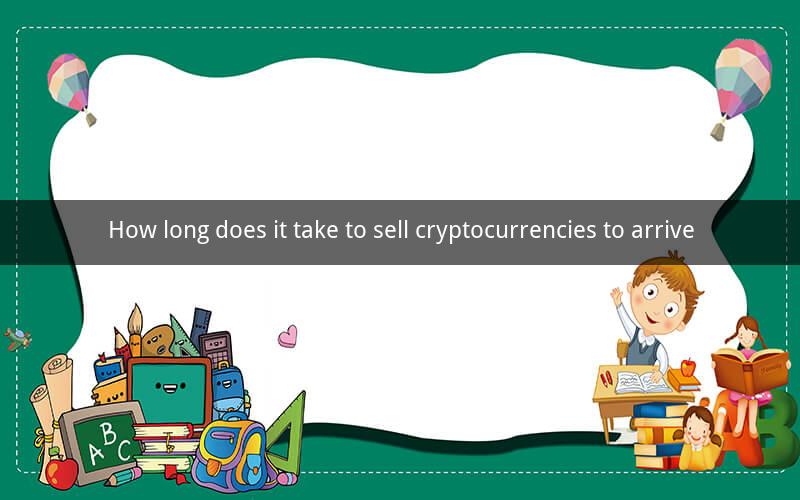
How Long Does It Take to Sell Cryptocurrencies to Arrive?
Table of Contents
1. Introduction to Cryptocurrency Transactions
2. Factors Affecting Transaction Time
3. The Role of Blockchain Technology
4. Transaction Confirmation Time
5. Network Congestion and Its Impact
6. Transaction Fees and Their Influence
7. The Role of Exchanges and Wallets
8. Best Practices for Selling Cryptocurrencies
9. Conclusion
1. Introduction to Cryptocurrency Transactions
Cryptocurrency transactions are digital exchanges of value that occur on blockchain networks. Unlike traditional banking systems, cryptocurrencies operate on a decentralized platform, which can result in varying transaction times. Understanding the factors that influence these times is crucial for users looking to sell their digital assets.
2. Factors Affecting Transaction Time
Several factors can affect how long it takes to sell cryptocurrencies and have the funds arrive in your designated account:
- Blockchain Network: Different cryptocurrencies operate on different blockchain networks, each with its own transaction speed.
- Transaction Confirmation Time: The time it takes for a transaction to be confirmed by the network.
- Network Congestion: High levels of network activity can slow down transactions.
- Transaction Fees: Higher fees can sometimes expedite transactions.
- Exchange or Wallet Processing Time: The time taken by the platform you're using to process the transaction.
3. The Role of Blockchain Technology
Blockchain technology is the backbone of cryptocurrency transactions. It ensures that each transaction is recorded on a public ledger, which is verified and added to the chain by network participants. This process, known as mining, can vary in time depending on the network's complexity and the computational power of its participants.
4. Transaction Confirmation Time
Transaction confirmation time is the time it takes for a transaction to be verified and added to the blockchain. For Bitcoin, this typically takes around 10 minutes per block, but it can be slower during times of high network congestion. Other cryptocurrencies have different confirmation times, with some being faster and others slower.
5. Network Congestion and Its Impact
Network congestion occurs when there is a high volume of transactions being processed simultaneously. This can lead to increased transaction times as the network tries to process all the transactions in the queue. During times of high congestion, transaction times can increase significantly.
6. Transaction Fees and Their Influence
Transaction fees are paid to miners for their work in processing and verifying transactions. Higher fees can incentivize miners to prioritize these transactions, potentially reducing the time it takes for them to be confirmed. However, fees can also be a deterrent for users looking to sell smaller amounts of cryptocurrency.
7. The Role of Exchanges and Wallets
Exchanges and wallets play a crucial role in the transaction process. Exchanges are platforms where users can buy, sell, and trade cryptocurrencies, while wallets are software applications used to store and manage digital assets. The time it takes to sell cryptocurrencies can be influenced by the efficiency of these platforms in processing transactions.
8. Best Practices for Selling Cryptocurrencies
To ensure a smooth and timely transaction when selling cryptocurrencies, consider the following best practices:
- Choose a reputable exchange or wallet: Use platforms with good security measures and a track record of efficient transaction processing.
- Understand the transaction fees: Be aware of the fees associated with selling your cryptocurrency and factor them into your decision.
- Monitor network congestion: Avoid selling during times of high network congestion when transaction times are likely to be longer.
- Check the confirmation time: Before selling, check the average confirmation time for the cryptocurrency you're selling to estimate when the funds will arrive.
9. Conclusion
The time it takes to sell cryptocurrencies and have the funds arrive can vary significantly due to a range of factors. Understanding these factors and following best practices can help users manage their expectations and ensure a more efficient transaction process.
---
FAQs and Answers
1. Q: Can I sell cryptocurrencies instantly?
A: No, cryptocurrency transactions are not instant and can take varying amounts of time depending on network conditions and the cryptocurrency being sold.
2. Q: How can I speed up my cryptocurrency transaction?
A: You can speed up a transaction by paying higher fees, which incentivize miners to prioritize your transaction.
3. Q: What is the average transaction time for Bitcoin?
A: The average transaction time for Bitcoin is around 10 minutes per block, but it can be longer during times of high network congestion.
4. Q: Can network congestion be avoided?
A: Network congestion is a common issue, but you can avoid it by selling during less busy times, such as early in the morning or late at night.
5. Q: How do transaction fees work on exchanges?
A: Exchanges typically charge a fee for each transaction, which can vary based on the amount being sold and the exchange's fee structure.
6. Q: Can I sell cryptocurrencies directly to a buyer?
A: Yes, you can sell cryptocurrencies directly to a buyer, but this requires trust and may involve additional security measures.
7. Q: What should I do if my transaction is taking too long?
A: If your transaction is taking too long, you can try to increase the fee, wait for a less busy time, or contact customer support for assistance.
8. Q: Are there any risks involved in selling cryptocurrencies?
A: Yes, there are risks, including the possibility of network congestion, high transaction fees, and security issues if you're using an untrusted platform.
9. Q: Can I sell cryptocurrencies without an exchange?
A: Yes, you can sell cryptocurrencies directly to a buyer without using an exchange, but this requires a secure and trusted method of payment.
10. Q: How can I ensure the safety of my cryptocurrency during the sale process?
A: To ensure safety, use reputable platforms, communicate securely with buyers, and never send your private keys to anyone. Always double-check the recipient's wallet address before sending funds.